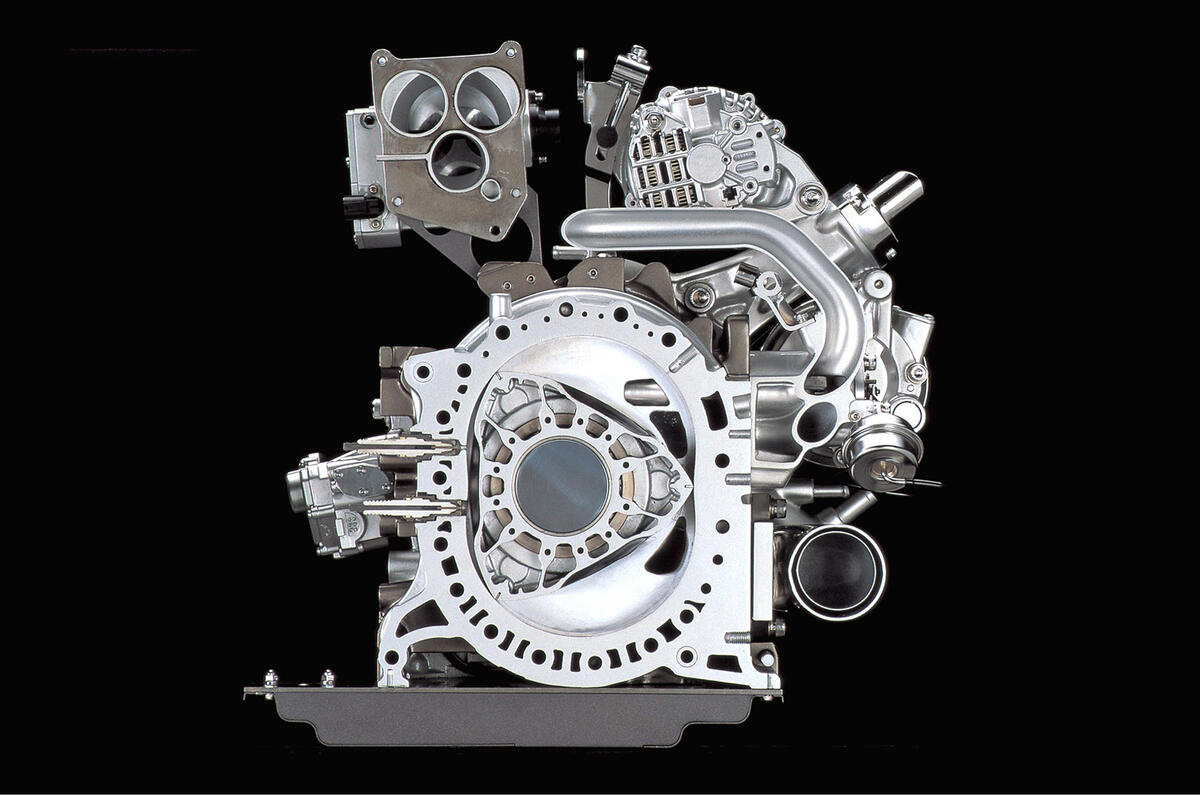Mazda has confirmed that it is still continuing to develop its rotary engine, which last saw production use in the Mazda RX-8.
The Wankel rotary engine was removed from Mazda's line-up due to its low efficiency. It wasn't able to meet stricter emissions regulations and it suffered high-fuel consumption for its output.
SkyActiv, a recent series of technologies developed by Mazda, focused heavily on improving the efficiency of combustion in an engine. Advances resulting from the project could be applied to the rotary engine in order to improve its economy and output.
The manufacturer also believes that there are considerable gains to be had by utilising more advanced ignition systems. This would further serve to boost performance while reducing consumption and emissions.
A Mazda engineer told Autocar that he’d like to see the new rotary in production within five years but, at the current moment in time, nothing is confirmed.
If it were to go in to production, the new engine would initially be offered in naturally aspirated form, with turbocharged versions following if testing proved them reliable.
Mazda boss, Takashi Yamanouchi, has stated that research into future rotary engines will continue as long as he works at the company. "The challenger spirit that has made us the world leader in rotary engines is still alive and well at Mazda."





Join the debate
Add your comment
NMGOM - youre preaching to
NMGOM - youre preaching to the converted, I m fully aware of ALL the virues of diesel engines, as I said I prefer diesel. The fact remains they dont produce as much power as an equivalent petrol.
Supertax - diesels are allowed bigger capacities BECAUSE of the fact that they dont make as much power as an equivalent petrol, but further to that, due to their success AND the fact that over time Audi and Peugeot have managed to get more BHP per litre from them, the rules have been slowly modified and theyve been subject to greater restrictions.
TBC - petrols have without doubt become much more efficient, but they do not match the efficiency of a diesel (and almost certainly never will). Manufacturers have not applied the same tech (cylinder cut out, multi air, downsizing etc) to the diesel engine yet, when they do, they ll be even more efficient.
A diesel Wankel would not necessarily reverse this, Rolls got good results from their diesel wankel, but turbo tech was not very advanced at the time, a modern diesel Wankel would be worth looking into and indeed Mazda has been reported to be doing this. It IS an area worth researching.
In the real world
Petrol engines have become far more efficient in a number of areas, however most of the headline figures are never realised in the real world. Why? Mainly due to where the power is produced, at the upper reaches of the (high) rev range, where most drivers hardly ever stray. And to do so means harming the MPG figure, whereas diesels produce most of the their usable power low down, and is thus used most of the time. A diesel Wankel engine would reverse this, meaning that most of the power would never be used, thus rendering it pointless.
The exception is in the latter generations of small capacity turbocharged petrol engines, which produce diesel like torque figures much lower in the rev range.
Rotary v Piston
I must be getting too long in the tooth to remember this one, but when I went to school I was taught that rotaries were more fuel efficient than pistons i.e. reciprocal motion has been eliminated. It never happened and the early Mazdas, ( RO80s I think ) failed because of seal wear which nowadays has been largely overcome.
So, can someone please remind me as to why rotaries always seem to lose out in terms of m.p.g. ? I'm waiting for that doh !! moment.
Just interested.